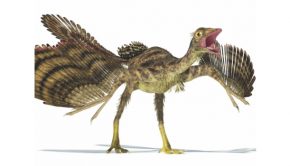Vanishing Wildlife
50 Percent Gone in Under 50 years
The latest World Wildlife Fund (WWF) Living Planet Report shows that the Living Planet Index (LPI), which measures more than 10,000 representative populations of mammals, birds, reptiles, amphibians and fish, has declined by 52 percent since 1970. The report is widely considered the leading science-based analysis on the health of our planet and the impact of human activity (Tinyurl.com/WWF-Living-Planet-Report).
In fewer than two human generations, populations of vertebrate species—the life forms that constitute the fabric of life-sustaining ecosystems and serve as a barometer of how humans are impacting nature—have dropped by half. Nature conservation and sustainable development go hand-in-hand; it’s not only about preserving biodiversity and wild places, but about safeguarding the future of humanity.
Living Planet Report partners include the Zoological Society of London, Global Footprint Network and Water Footprint Network. Marco Lambertini, director general of WWF International, states, “We need leadership for change. Sitting on the bench waiting for someone else to make the first move, doesn’t work. Heads of state need to start thinking globally; businesses and consumers need to stop behaving as if we live in a limitless world.”





























